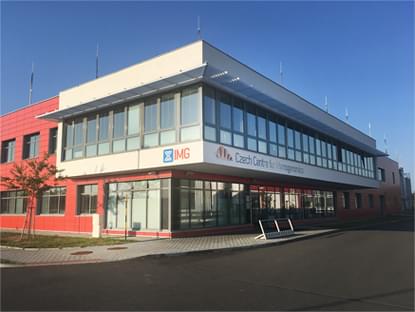Main topics
- Immunology & Infection
- Disease models
- Neurosciences
- Preclinical development
Keynote speakers
-
Jakub Abramson
Weizmann Institute of Science, Israel -
Steve Brown
MRC Harwell Institute, United Kingdom -
Yann Herault
IGBMC, France
Invited speakers
- Aich Abhishek
- Sabine Hölter-Koch
- Stephan von Hörsten
- Wieland Huttner
- Martien Kas
- Bernard Malissen
- Daniel Růžek
- Peter Šebo
- Oliver Stiedl
- Gary Thomas
Dear Colleagues,
It is my great pleasure to invite you to the third CCP Phenogenomics Conference. This year, the conference will be a virtual meeting due to the continuing uncertainty about travel.
The scientific committee has selected two main thematic focuses. The first day will be dedicated to immunology, infectious diseases, and human diseases models. Among other interesting topics, this day will of course cover Covid-19 related research and the translation of basic research results into application. The second day is specifically dedicated to preclinical development and advances in neuroscience.
Even though, taking place only in a virtual environment, we believe that the Conference will provide an excellent opportunity to support networking and interactions among the CCP users and experts.
We are looking forward to meeting you virtually in September 2021.
Yours sincerely,
Radislav Sedlacek
Director of the Czech Centre for Phenogenomics
Institute of Molecular Genetics of the Czech Academy of Sciences
Czech Centre for Phenogenomics (CCP)
CCP is a large research infrastructure unique in combining genetic engineering capabilities, advanced phenotyping and imaging modalities, SPF animal housing and husbandry, as well as cryopreservation and archiving, all in one central location – at BIOCEV campus.
Through its membership in INFRAFRONTIER and IMPC, CCP is a partner in a global network that aims to comprehensively and systematically analyze the effect of loss of function gene mutations in mice. The goal is to produce a comprehensive ‘encyclopedia‘ of gene function, that will help identify causative factors of human diseases as well as novel targets for therapeutic intervention.

